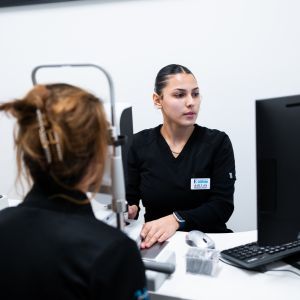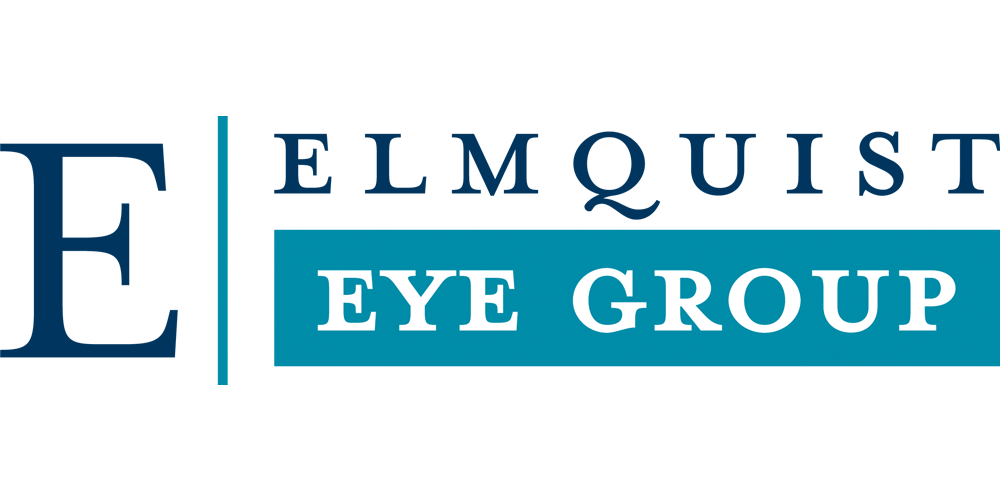Cataracts
Cataracts are a common eye condition that gradually cloud the natural lens of your eye, making it harder to see clearly. Glasses or contact lenses help in the early stages, but surgery is the only way to fully restore clear vision. We specialize in safe, effective cataract removal, helping you see clearly again and return to the activities you love.
What Are Cataracts?
A cataract is a clouding of your eye’s natural lens, the clear part that helps focus light so you can see sharp images. Over time, proteins in the lens can clump together, making vision appear hazy, dim, or blurred. Cataracts are a normal part of aging, but they can also develop earlier due to diabetes, eye injuries, certain medications, or other health conditions. They often progress slowly, so you may not notice changes right away — but eventually, they can make it difficult to read, drive, or recognize faces.
Once a cataract develops, there is no way to reverse it with medication, diet, or glasses. The only proven treatment is surgical removal of the cloudy lens and replacement with a clear artificial one. Understanding how cataracts form and progress is the first step toward knowing when it’s time to take action.
Do I Have Cataracts?
Cataract Symptoms to Watch For:
The symptoms of cataracts may vary from person to person, but they typically include:
- Blurred, cloudy or dim vision
- Colors appearing faded or yellowed
- Difficulty reading in low light
- Trouble driving at night due to glare or halos
- Frequent changes in glasses prescription
- Increased sensitivity to bright sunlight
Most people experience changes in vision that gradually worsen over time. If you’re noticing subtle vision changes, scheduling a comprehensive eye exam is the best first step.
When to Consider Cataract Surgery?
Cataracts often develop slowly, so you might not notice changes at first. When symptoms start to interfere with your ability to work, drive, read, or enjoy daily activities, it’s time to schedule a cataract evaluation. We’ll perform a comprehensive eye exam to see how much your vision has been affected and talk with you about the right timing for surgery, so you can feel confident about your next steps.
“I knew it was time for cataract surgery when I couldn’t see my pickle ball land.”
Cataract Surgery: A Quick, Comfortable Outpatient Procedure
Cataract surgery is one of the safest and most common procedures performed today — and it’s done on an outpatient basis, meaning you’ll go home the same day. After your eye is numbed, a tiny opening is made in the lens capsule, and the cloudy natural lens is gently broken up and removed. Your surgeon then places a clear artificial lens implant in the same spot to restore your vision. The procedure usually takes less than 15 minutes per eye, and you’ll be awake the whole time but comfortable and relaxed. Most people notice improved vision within a day or two, with minimal downtime.
Advanced Cataract Surgery at Elmquist
At Elmquist Eye Group, you’re in the hands of Dr. Yasaira Rodriguez, board-certified ophthalmologist and skilled cataract surgeon. She combines surgical precision with a warm, personal approach, ensuring you feel informed, comfortable, and confident every step of the way.
Surgical Excellence, Delivered In-Office
When you choose cataract surgery at Elmquist Eye Group, your procedure can be performed right in our fully equipped, accredited office-based surgical suite. This option offers a safe, comfortable environment without the added steps of a hospital or surgery center, often making the process more convenient and efficient.
- Laser-assisted cataract surgery for greater precision
- Advanced lens implant options tailored to your visual goals
- In-office surgery for max convenience: no IV and no fasting, for a smoother, easier preparation process
- Highly trained surgical and support team dedicated to your comfort
Office Based Surgery
Laser Cataract Surgery
Laser cataract surgery uses advanced laser technology to perform some of the most delicate steps of cataract removal with even greater precision. By creating exact incisions and softening the cloudy lens before removal, the laser can help achieve more accurate results to improve visual outcomes. This option can be especially helpful for patients who choose lifestyle lens implants or want astigmatism correction at the time of surgery. We’ll discuss whether laser cataract surgery is right for you during your evaluation.
Vision After Cataract Surgery
- Advanced multifocal or extended depth-of-focus lens implants provide clear vision at near, intermediate, and far distances, reducing dependence on glasses.
- Toric lens implant or laser-assisted surgery can correct astigmatism for sharper distance vision with less need for glasses.
- Monofocal lens implant removes the cataract but does not correct astigmatism or presbyopia, so glasses are still needed for most activities.
Understanding Your Lens Implant Options
Maximum Spectacle Freedom
Distance + Astigmatism Correction
Full Dependence on Glasses
Recovery: Clear Vision, Faster Than You Think
Most people are pleasantly surprised by how quickly they recover from cataract surgery. You’ll go home the same day with simple instructions to protect your eye, and many patients notice clearer vision within just a day or two. Mild blurriness, watering, or light sensitivity can occur during the first week, but these usually improve quickly. With the help of prescription eye drops and follow-up visits, most patients return to normal activities — including driving — within a few days, while avoiding heavy lifting, swimming, or dusty environments until cleared by the doctor.
See What Patients Say
Dr. Rodriquez and the entire staff at Elmquist were fantastic. I had my first cataract surgery yesterday, and now I see perfectly through that eye. They made me feel comfortable and safe. Absolutely no pain during or after. I am so pleased. Getting my other eye done next week.

I just had my cataract surgery and everything went well. Dr. Rodriguez performed the procedure right in the office, which was so nice. The surgery was quick and easy and the staff made me feel special with wonderful care.




Frequently Asked Questions
What Causes Cataracts?
While aging is the most common cause, cataracts can also result from eye injuries, certain medications, and prolonged exposure to sunlight. Medical conditions such as diabetes can speed up their development. Lifestyle habits like smoking may also increase risk. Knowing your risk factors helps you be proactive about eye health and plan for treatment when it becomes necessary.
What are the first signs of having cataracts?
At first, the cloudiness in your vision caused by a cataract may affect only a small part of the eye’s lens. You may not notice any vision loss. As the cataract grows larger, it clouds more of your lens. More clouding changes the light passing through the lens. This may lead to more noticeable symptoms, such as glare or halos when driving at night and increased sun sensitivity.
Cataract Treatment Options
Once a cataract forms, it cannot be reversed with medication, diet, or glasses. The only proven treatment is surgical removal of the cloudy lens and replacement with a clear, artificial lens. At Elmquist Eye Group, cataract surgery is performed with advanced technology, including laser-assisted techniques for added precision. These options allow us to tailor your treatment to your eyes, vision goals, and lifestyle.
Cataract Surgery Recovery
Cataract surgery is a quick, outpatient procedure that replaces your cloudy lens with a clear implant in under 15 minutes. You’ll be awake but comfortable, and most people see better within a couple of days.
Regain Your Focus
Say Goodbye to the Blurred View


schedule your exam
Ready to See Clearly Again?
Schedule your cataract evaluation today and take the first step toward brighter, sharper vision.
